| Our 2022 All-Stars rose to the challenge |
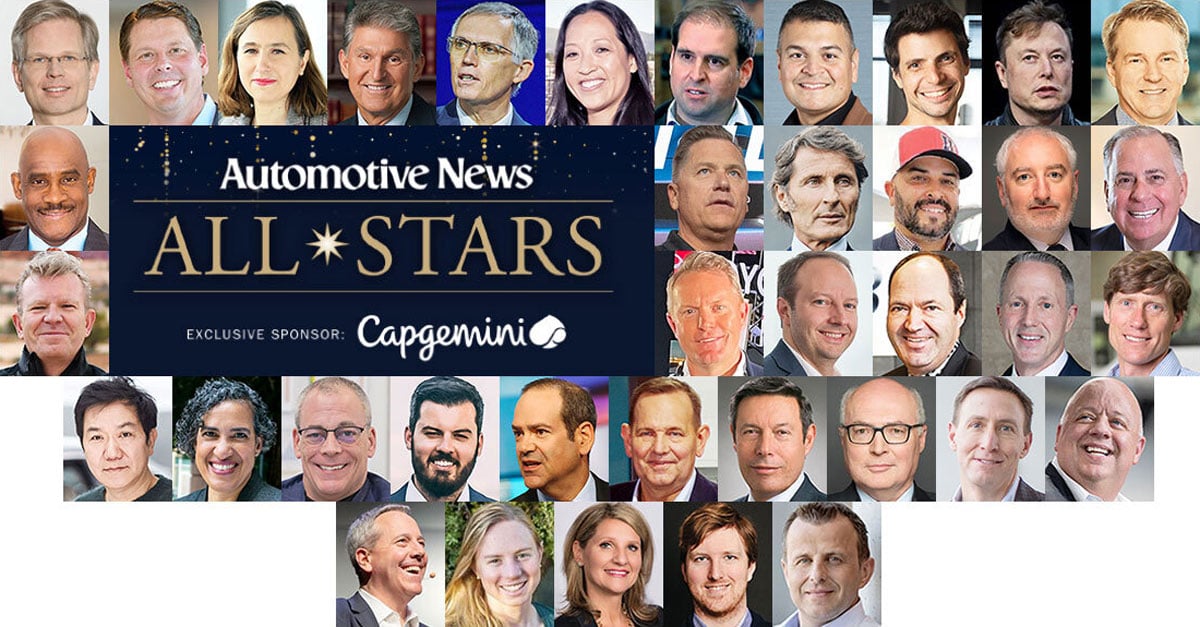
Every year, the editorial staff of Automotive News convenes to select our annual All-Stars, an exercise that often involves vigorous debate and occasionally tough decisions.
Our goal is to recognize leaders who have steered their companies through extraordinary challenges, led their organizations to new heights and innovated in ways that will transform the automotive landscape.
The prevailing theme among the 2020 and 2021 All-Stars was how they managed the shocks of the COVID-19 pandemic and global microchip shortage that severely hampered vehicle production and constricted the flow of inventory to dealers’ lots. In 2022, neither problem went away, but there are signs that both are abating, at least somewhat.
While that dual threat is not quite as pronounced this year as it was during the previous two, the industry continued to face production challenges and inventory shortages. If those issues weren’t enough, the industry’s troubles were compounded by:
■ Russia’s invasion of Ukraine, which disrupted automotive supply chains and sent fuel prices skyrocketing.
■ The most rapid increase in inflation since the 1980s, driven in large part by soaring new- and used-vehicle prices.
■ The start of the most aggressive series of interest rate increases by the Federal Reserve in four decades, which are intended to tame inflation.
■ The Inflation Reduction Act, which is forcing every automaker and retailer selling or planning to sell electric vehicles in the U.S. and their battery-making partners to reevaluate their manufacturing and raw materials-sourcing plans.
■ The high costs of raw materials needed to build EV components.
Still, our All-Stars persevered, delivering excellent products and services to their customers, introducing innovations that are key to the future of mobility, and making other significant contributions to the industry in myriad ways.
This week we reveal the 38 members of the Class of 2022. (A couple of this year’s selections might be controversial in the eyes of some. See my column in this week’s issue for my thoughts on them.)
At this time next year, I predict we’ll be talking about how our next set of All-Stars coped with interest rates and other economic pressures, how the industry managed the slow return to production normalcy, even more innovative thinking — and the unpredictable.
Looking forward to seeing what unfolds in 2023.
 |
|---|

“Adam’s proactive and collaborative leadership combined with an acute love for store operations will fit well alongside our regional presidents.” |
— LITHIA CEO BRYAN DEBOER ON THE HIRING OF FORMER ASTON MARTIN AMERICAS AND MERCEDES-BENZ USA EXECUTIVE ADAM CHAMBERLAIN AS REGIONAL PRESIDENT OF OPERATIONS FOR THE AUTO RETAILER’S EAST REGION |
|
From “Lithia Motors hires Adam Chamberlain, former Aston Martin Americas president” |
 |
|---|
In Monday’s Automotive News:
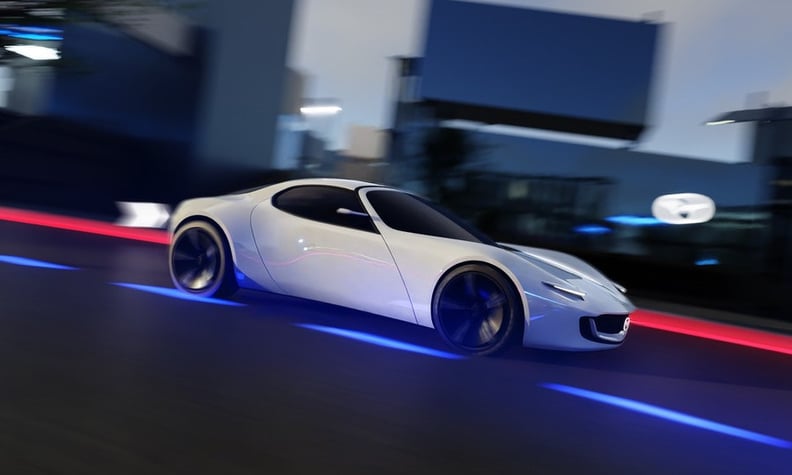
Mazda has an EV plan: Electric vehicle laggard Mazda Motor Corp. will plow $10.6 billion into electrification through 2030 with a string of partnerships targeting everything from batteries and motors to computer chips in an attempt to catch up in a global race for new technologies. Automotive News looks at the new plan, which includes partnering with battery makers; and semiconductor companies and perhaps even starting EV production in the U.S. as early as 2026-27.
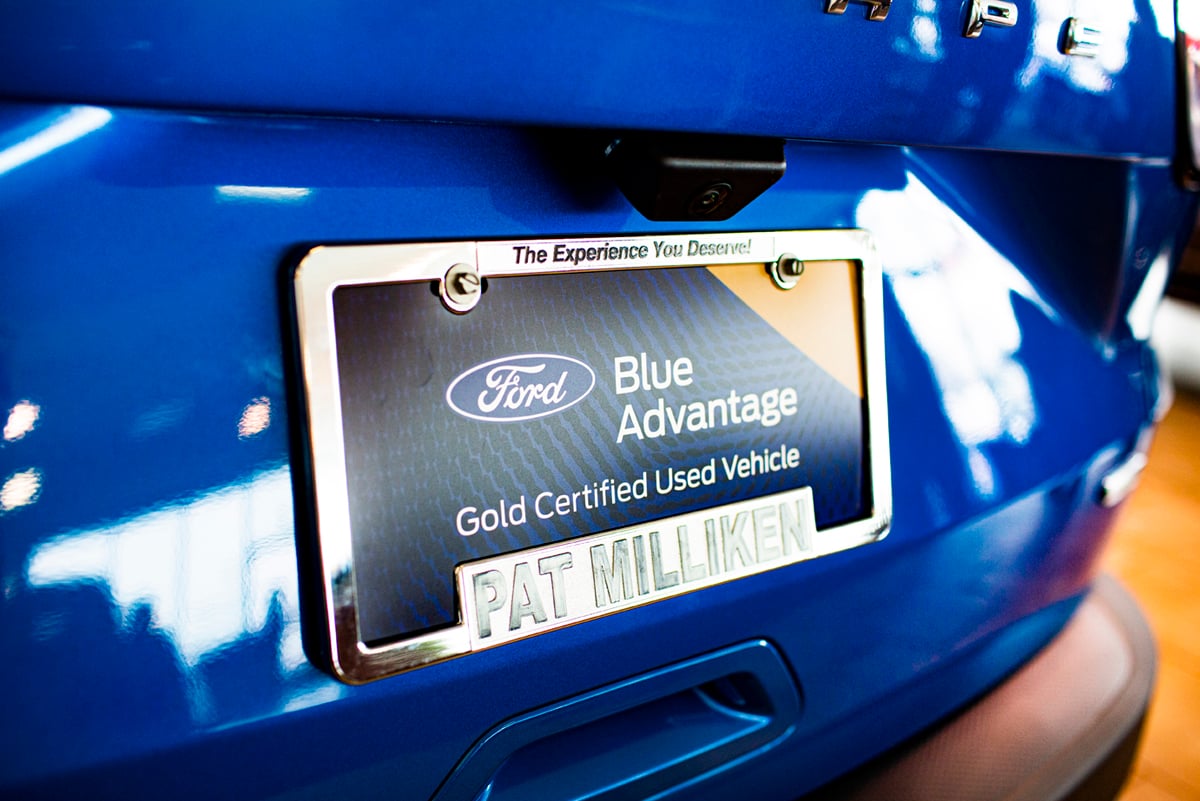
Bucking the trend: It’s no secret that nationwide sales of certified pre-owned vehicles are on pace to decline from 2021 levels, but dealers participating in the Ford Blue Advantage program are experiencing double-digit gains. Ford says CPO sales for the roughly 1,400 dealers who are part of Blue Advantage were up about 15 percent year over year through October, vs. a 12 percent decrease for CPO sales nationwide. Automotive News looks at the program that has some individual retailers seeing gains of as much as 40 percent — sales that are more vital than ever with supply chain issues and production cutbacks limiting new-vehicle availability.
Weekend headlines
Ford recalls nearly 634,000 Bronco Sports, Escapes: Ford says it is recalling 634,000 crossovers worldwide over fire risks from possible cracked fuel injectors and will urge owners to have their cars inspected. Ford says the recall covers 2020-23 model year Bronco Sport and Escape crossovers with 3 cylinder, 1.5 liter engines.
VinFast ships first EVs to the U.S.: Shipping the first batch of VF 8 electric crossovers caps a five-year effort to develop its production hub. VinFast expects to ship a second batch of cars to the U.S., its first export market, around January.
 |
|---|
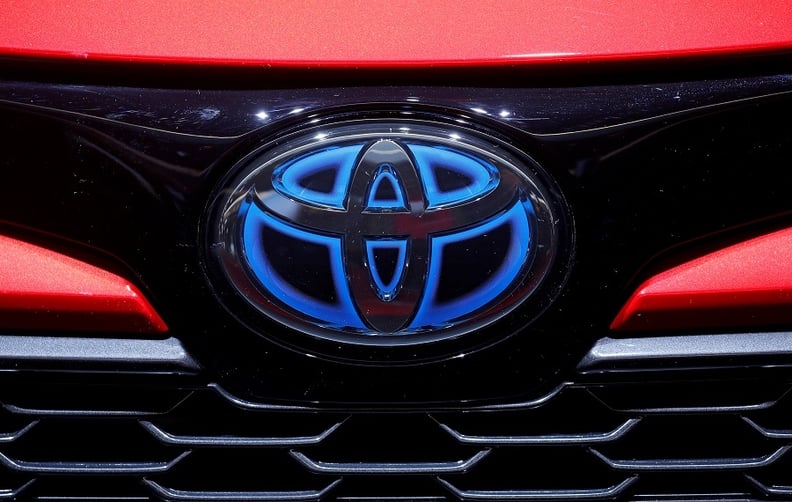
Toyota dials down December output: Toyota Motor Corp. is trimming global output in December after it slashed its fiscal year production outlook by half-a-million vehicles due to ongoing supply chain upheaval. The world’s biggest automaker says that it expects to make only 700,000 vehicles worldwide next month.
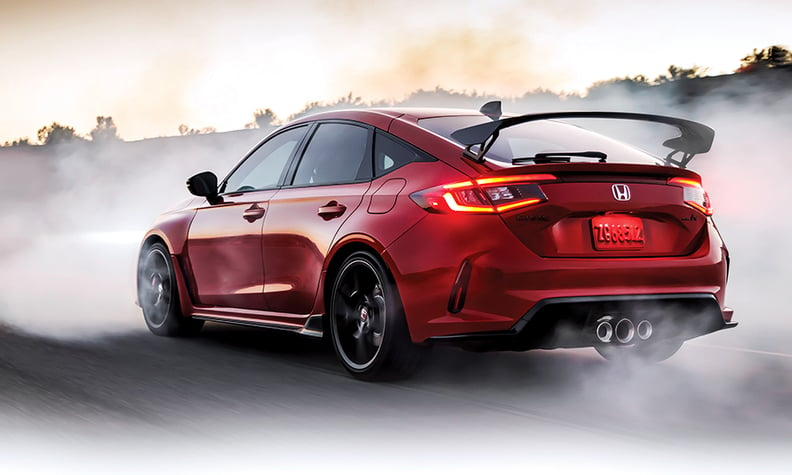
Small changes lead to big upgrade: With 315 hp and 310 pound-feet of torque from its 2.0-liter turbocharged engine, the 2023 Civic Type R is not a remaking of the 25-year-old nameplate, but a wholesale improvement on the small things. These tweaks make for a big step up in overall handling and power, early reviews say.
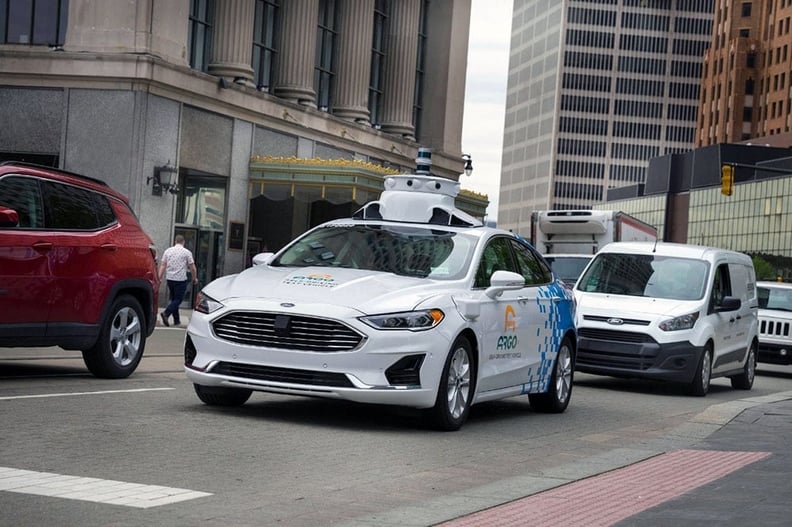
Amazon almost saved Argo AI: The giant online retailer was prepared to invest several hundred million dollars into Argo AI last spring. Amazon planned to use Argo’s self-driving technology to automate some of the electric delivery vans it’s buying from Rivian Automotive Inc., setting up a test fleet in multiple U.S. cities. The deal fell apart because of a sputtering economy, concerns about control and flagging faith in fully autonomous driving.
 |
|---|
 |
|---|
 |
|---|
Nov. 27, 1936: Some 1,200 workers at Detroit’s Midland Steel plant staged what may have been the first sit-down strike in the auto industry. Midland Steel supplied body frames to Ford and Chrysler Corp., and the shortage of those frames forced Midland to settle with the workers. That was the first time a major company in the industry had to come to terms with a union representing all of its workers.
